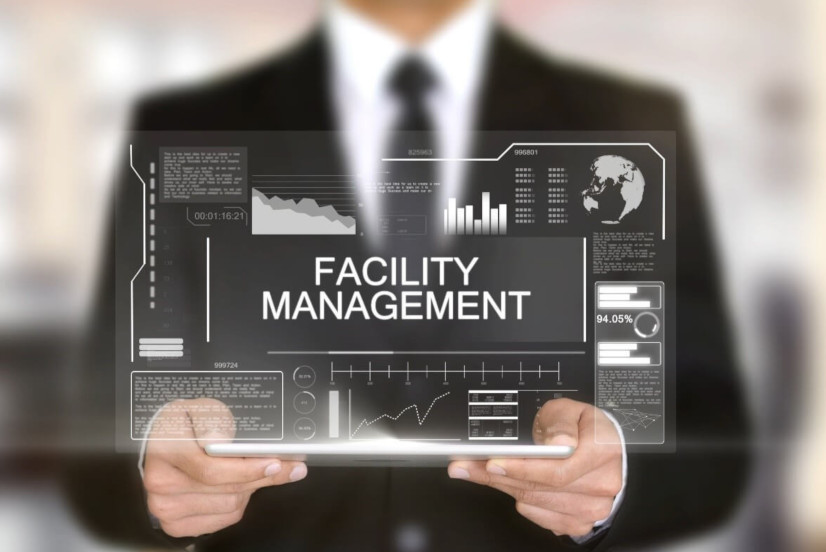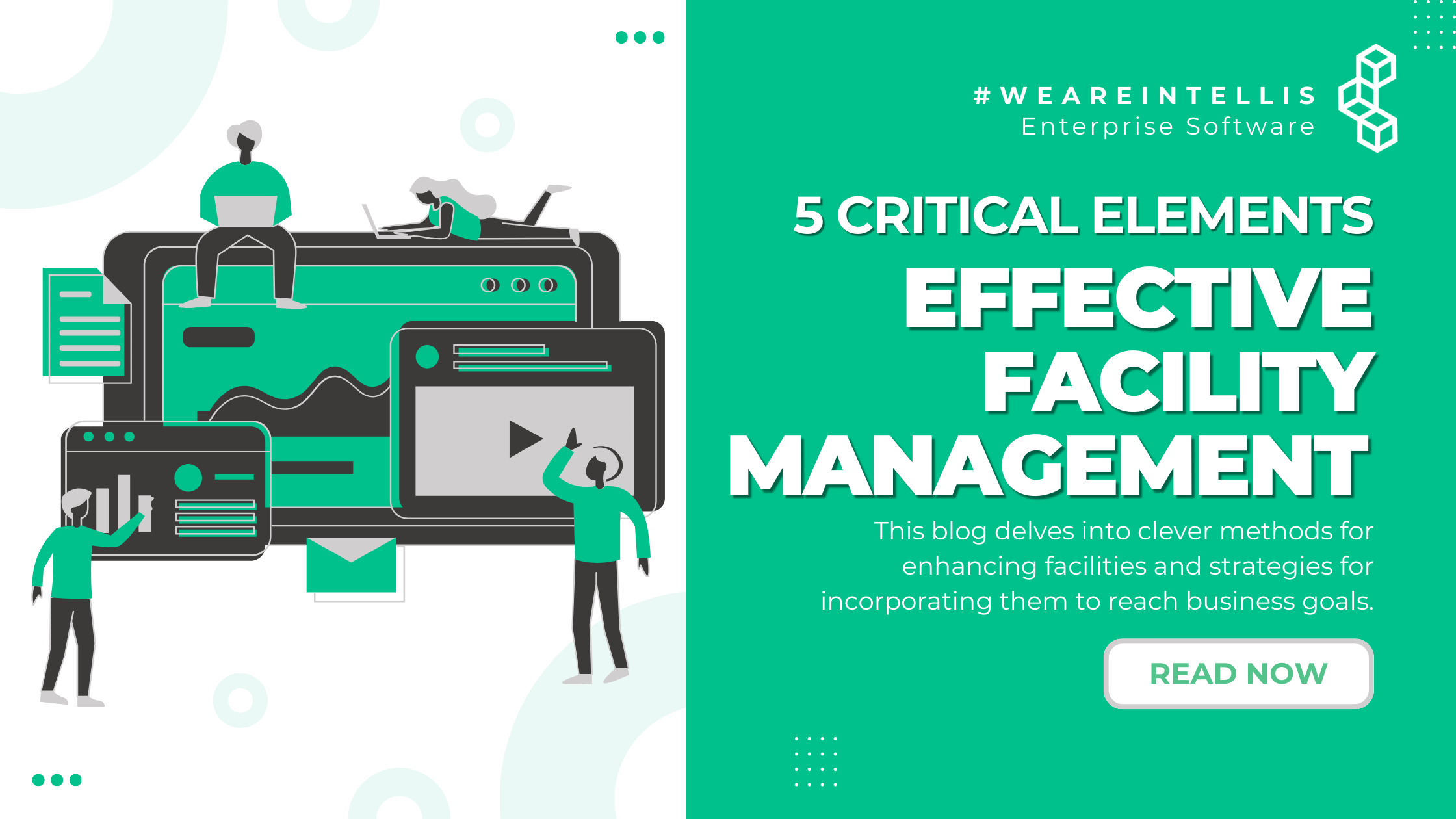Facility Management Solutions-- Ensuring Security and Maintenance
Facility Management Solutions-- Ensuring Security and Maintenance
Blog Article
Trick Patterns Shaping the Future of Center Management in 2024
As we expect 2024, the landscape of center management is positioned for considerable transformation, driven by numerous essential fads. The combination of wise building innovations and a shift towards data-driven decision-making promise to enhance functional performance while prioritizing sustainability in technique. The appearance of crossbreed work versions is reshaping office settings, necessitating ingenious style services that provide to advancing worker demands. Amid these changes, the focus on owner wellness continues to get grip, emphasizing the significance of a healthy and balanced workplace. Exactly how these patterns will certainly manifest in practice stays an essential question for industry experts.
Smart Structure Technologies

Smart building technologies encompass a wide selection of systems, including intelligent lights, a/c controls, and security systems. By integrating these systems, facility managers can check and change parameters in real-time, leading to considerable decreases in power waste and operational costs. As an example, clever sensors can detect tenancy levels and readjust lighting and temperature accordingly, ensuring that power is only made use of when required.
In addition, these innovations facilitate enhanced data collection, allowing organizations to track use patterns and recognize chances for more renovations. The implementation of clever building innovations not only adds to sustainability objectives but likewise creates healthier work atmospheres that can increase staff member productivity and fulfillment.
As we relocate into 2024, the fostering of clever building innovations will likely increase, reflecting a wider change towards even more smart, receptive, and sustainable facility monitoring practices.
Data-Driven Choice Making
Significantly, organizations are leveraging data-driven decision making to improve center monitoring methods. By harnessing data analytics, facility managers can obtain workable understandings that substantially improve operational efficiency and resource allotment. The integration of innovative technologies, such as IoT sensors and real-time surveillance systems, allows the collection of substantial amounts of data on structure efficiency, tenancy prices, and power intake.
This wide range of details allows facility managers to identify trends, predict upkeep needs, and proactively address issues before they escalate. Predictive analytics can forecast tools failings, lowering downtime and fixing prices. In addition, information visualization devices help with far better interaction amongst stakeholders, making sure that educated choices are made collaboratively.
Additionally, data-driven techniques improve tactical planning by enabling center supervisors to analyze the efficiency of existing methods and make informed selections pertaining to financial investments in modern technology or facilities. As companies progressively prioritize functional excellence, data-driven decision production is poised to end up being a cornerstone of effective center management strategies in 2024 and past. Inevitably, the capacity to leverage information successfully will encourage companies to create extra effective, productive, and resistant facilities.
Sustainability and Environment-friendly Practices
The focus on data-driven decision making normally lines up with the expanding emphasis on sustainability and green practices within facility monitoring. As organizations significantly prioritize ecological obligation, center supervisors are leveraging analytics to optimize source usage, reduce waste, and lessen carbon footprints. This critical approach enables the combination of energy-efficient systems, such as LED illumination, wise cooling and heating controls, and renewable resource resources into facility procedures.
Furthermore, the execution of sustainable techniques prolongs past energy usage. Center managers are advertising and adopting environmentally friendly products reusing campaigns to produce a round economy within their centers. This not only improves the ecological account of the company but Continue likewise cultivates a society of sustainability among workers.
Compliance with environmental laws is another vital facet driving the fostering of green practices. By utilizing information analytics, center supervisors can keep track of compliance metrics and recognize locations for improvement, guaranteeing adherence to regional and global sustainability standards.
Hybrid Job Models
A considerable change in the direction of hybrid work designs is reshaping the landscape of facility administration in 2024. This paradigm incorporates remote and in-office work, requiring a reevaluation of area use, source allowance, and staff member interaction approaches. Organizations are significantly identifying a fantastic read the relevance of adaptable workspaces that accommodate varied demands and choices.
Facility supervisors should adjust by implementing functional office styles that sustain collective initiatives while supplying areas for focused job. This consists of the integration of innovation to facilitate smooth communication and cooperation amongst remote and in-office workers. Smart structure services, furnished with analytics and sensors, permit real-time monitoring of area use, allowing organizations to maximize their settings efficiently.
In addition, hybrid job models highlight the demand for efficient center management that focuses on worker experience. In essence, the hybrid work model is revolutionizing facility administration, urging an aggressive technique to satisfy the progressing demands of the workforce.
Improved Passenger Wellness
As companies embrace hybrid job designs, an enhanced emphasis on resident wellness is coming to be indispensable to center administration strategies. Facility Management. This change identifies that a healthy and balanced and pleased workforce straight affects performance and retention rates. Facility managers are currently prioritizing environments that advertise physical and mental health, integrating elements such as all-natural illumination, biophilic layout, and obtainable wellness sources

Technology plays a vital role in this evolution. Smart building systems can keep an eye on environmental variables and readjust settings in real-time, making sure optimum convenience levels - Facility Management. Comments devices, such as tenancy sensing units and staff member studies, permit center supervisors to constantly fine-tune wellness efforts based on passenger demands.

Conclusion
In 2024, the future of center administration will be significantly influenced by the assimilation of wise building technologies and data-driven decision-making, fostering improved functional effectiveness. Sustainability efforts will certainly focus on environment-friendly practices, while the emergence of hybrid job designs will necessitate adaptable office designs. Moreover, an enhanced focus on owner wellness through innovative a/c systems and biophilic design will certainly add to much healthier job atmospheres. These patterns collectively highlight the evolving landscape of center management Bonuses in feedback to contemporary obstacles and chances.
Center managers are embracing eco-friendly products and promoting reusing campaigns to create a circular economic situation within their facilities.A significant shift in the direction of hybrid work versions is reshaping the landscape of facility administration in 2024.In addition, crossbreed job models stress the demand for effective facility administration that focuses on staff member experience.As organizations embrace hybrid job versions, a heightened emphasis on owner wellness is becoming important to center monitoring approaches.In 2024, the future of center administration will certainly be substantially affected by the integration of smart structure technologies and data-driven decision-making, fostering enhanced operational effectiveness.
Report this page